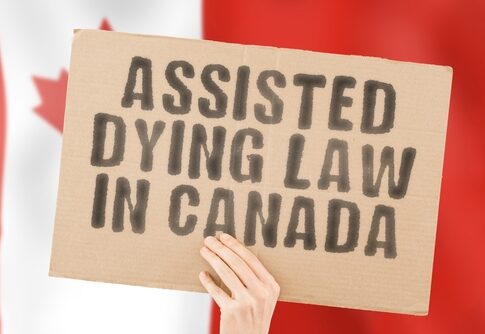The issue of pressure tactics in euthanasia for disabled patients in Canada is receiving critical attention. Whistleblowers have alleged that healthcare professionals are pushing disabled individuals toward euthanasia. What are the allegations made by Heather Hancock and Roger Foley?
Whistleblower Allegations
Heather Hancock and Roger Foley have come forward with claims that Canadian doctors pressured them to accept euthanasia. Hancock, who has cerebral palsy, reported that hospital staff frequently suggested Medical Assistance in Dying (MAID) due to her suffering, a proposition she declined based on her religious beliefs. Similarly, Foley alleges that his hospital staff withheld necessities and frequently proposed euthanasia, a stress that led to suicidal thoughts.
Since the legalization of euthanasia in Canada in 2016, the laws have been broadened to include non-terminal diagnoses. Whistleblowers have highlighted cases where these expansions may have been misused, including recording evidence collected by Foley of his mistreatment. Both Hancock and Foley represent a broader concern regarding the risk of veiled coercion in vulnerable patient groups.
Trudeau’s Canadian medical professionals are now pressuring the mentally or physically ill, disabled, infirm and elderly to kill themselves by euthanasia (MAID) because of their “burden on the healthcare system”. pic.twitter.com/OxYo4zQg8X
— Kate (@katewand) August 26, 2022
Evolving Euthanasia Laws
Canada’s euthanasia program, or MAID, has been a contentious topic since its inception. Dying With Dignity Canada advocates for further expansion, proposing the inclusion of “mature minors” in the eligible group. With reports citing 428 possible legal violations related to euthanasia in Ontario from 2018 to 2023, the lack of police reporting is troubling.
Each of these cases underscores the delicate balance between offering aid in dying and protecting patient rights. A Vancouver doctor, implicated in hundreds of euthanasia cases, raises ethical concerns about compliance with MAID guidelines. Such instances stress the demand for robust safeguards to preclude potential abuse within the system.
Euthanasia now accounts for 1 in 20 deaths in Canada -15,300 Canadians died by euthanasia last year.
When medically assisted death was legalized, it was touted as a last resort for the most extreme cases.
This is simply not the case.
Canada has one of the fastest growing… pic.twitter.com/I3u8xX6Kzm
— Dr. Leslyn Lewis (@LeslynLewis) December 17, 2024
Medical Ethics and Patient Rights
For patients like Hancock and Foley, the pressure to consider euthanasia highlights the ongoing debate in medical ethics. Foley, whose legal battles continue despite financial barriers, voiced dissatisfaction with a system he deems cost-focused over patient-centered care. His case involves a significant billing dispute with his healthcare provider, reduced after contention.
The dialog around euthanasia accentuates the necessity for an enhanced ethical framework. Implementing stringent rules and transparent processes can safeguard individuals from undue influence and ensure life-critical decisions align with patients’ desires. This development in Canada may serve as a precedent for other countries grappling with similar ethical concerns.


